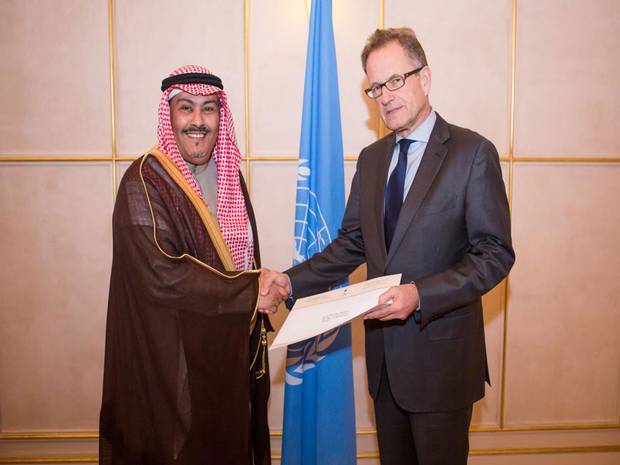Ahlul Bayt News Agency - The United Nations has been criticized for appointing a Saudi Arabian representative as the head of an influential human rights panel. Both a watchdog of the global body and the wife of Raif Badawi, the blogger sentenced to 1,000 lashes by the Gulf state last year, have condemned the choice.
Faisal bin Hassan Trad was appointed as the chair of a panel of five ambassadors, known as the Consultative Group, which oversee the U.N.'s Human Rights Council and chooses representatives that report on human rights violations countries around the world, according to U.N. Watch, a Geneva-based NGO that monitors U.N. activity.
Trad was appointed to the role in June but the U.N. failed to disclose the information, the NGO added. "It is scandalous that the U.N. chose a country that has beheaded more people this year than ISIS to be head of a key human rights panel," said the executive director of U.N. Watch, Hillel Neuer in a statement released on Saturday. "Petro-dollars and politics have trumped human rights."
"Saudi Arabia has arguably the worst record in the world when it comes to religious freedom and women's rights, and continues to imprison the innocent blogger Raif Badawi," he added.
"This U.N. appointment is like making a pyromaniac into the town fire chief, and underscores the credibility deficit of a human rights council that already counts Russia, Cuba, China, Qatar and Venezuela among its elected members."
Badawi's wife, Ensaf, also condemned the decision, writing in a message posted on Facebook that the U.N.'s appointment of Trad to lead the human rights panel was like giving Riyadh "a green light to start flogging again."
Badawi was sentenced to 10 years in prison and 1,000 lashes for "insulting Islam" under the country's radical Islamic law of Sharia, after her created a liberal online forum. He received the first 50 lashes of his sentence in January this year but the others were postponed on medical grounds. His sentence was upheld in June despite international condemnation and can now only be overturned by a royal pardon.

Rights group Amnesty International last month condemned Saudi Arabia as one of the "most prolific executioners in the world"—the country executed 2,200 people between January 1985 and June 2015. Executions have been issued against people who committed their crimes when under the age of 18 and almost half of those executed have been foreign nationals.
In another recent and controversial case, a Saudi Arabian man is to be beheaded and then crucified for attending an anti-government protest in 2012 when he was 17, after a court in the Saudi coastal city of Jeddah passed the sentence which was upheld by the country's Supreme Court last week.
International rights group, Human Rights Watch, reported in June that Riyadh has executed more than 100 people since the beginning of 2015, more than the 88 conducted in the entire 12-months of the previous year. Forty-seven of those executed were for drug offences.
/129

